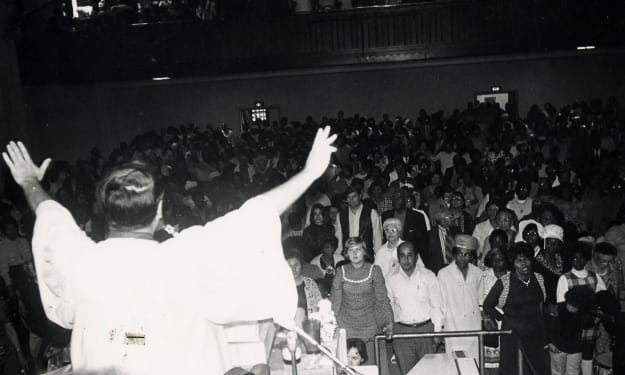
August 30th is International Day of the Disappeared. Today is all about drawing attention to those who have disappeared without a trace. Every year, according to the Department Of Justice, over 600,000 people go missing in the US. Based on their statistics, someone goes missing every 40 seconds. The US police department has 100,000 active missing person cases on their desk every day. Though these numbers may look terrible, a vast majority of cases are closed as soon as they are opened. Out of the 600,000 cases, 485,000 of those cases will be solved within the first year we file them. Anybody of any age can go missing for a variety of reasons other than kidnapping. Drug use, psychiatric disorders, running away, and dementia are some of the most common ways people go missing. Here are some tips you should remember if your loved one goes missing someday.
DO NOT WAIT!
As soon as you suspect someone is missing, call the police! There is no such thing as a mandatory wait time for filing a missing person case. The longer you wait, the colder the trail gets. Answer all the officer’s questions as truthfully as possible. Give them three of the most recent, clear images of that person. Try to use ones with just them in the picture to prevent confusion. If they go by a nickname or an alias, let them know. Tell the cops everything you know about the person, such as:
- Overall physical description
- What they are wearing at the time of the disappearance
- Possessions they often have on them like jewelry, their purse's brand, etc.
- Any scars, birthmarks, or tattoos and where they are on the body
- List of any medications they take regularly
- Places they frequent
- Description of their car or motorized vehicle, if applicable
Any information you can provide, no matter how small you think it is, could be what leads to them being found. Once the report is filed, get a copy for your own personal records. They will often have the names of the officers who are handling the case, so if you think of any more information, you’ll know who to contact.
Help With The Search
While the cops do their part investigating, you can do your part in the search efforts. Contact and file a report at the US Dept. Of Justice to get them added to the National Missing and Unidentified Persons System (NamUs) if the police haven’t already. If it is a child, contact the National Center For Missing and Exploited Children at 1-800-843-5678 or online at https://www.missingkids.org/home. The National Alliance on Mental Illness can help those who have gone missing with mental health issues. You can reach them at 1-800-950-6264, or online at https://nami.org/Home. Call your local hospitals and coroner’s office to see if someone who matches their description arrived there. Because of the HIPAA Laws, they can not tell you anything about the patient’s condition. All they can do is confirm that someone at the hospital is there matching that name and description. Use the inmate locator at your local police precinct’s website to see if they got arrested. Departments don’t communicate very well with each other, and it often takes a while to file the proper paperwork with inmates. So, there’s a possibility that they got lost in the shuffle of bureaucracy. Reach out on social media on a community watch or flea market page that this person has gone missing. Hang flyers in prominent locations, such as gas stations they go to, grocery stores they shop at, nearby homeless shelters, or trails they enjoy. Use the same information and pictures you gave the police to keep everyone on the same page.
Reaching Out
The more people that know your loved one is missing, the higher the chances of them being found. If it is a child, the police will issue an AMBER alert. Contact all of your local news media to get some air time devoted to finding your missing loved one. This is a great way to publicize your situation and increase public awareness of your missing person. Send photos or videos to all your local TV stations for them to broadcast. Call your local paper about doing a story on it. If you can afford it, hire a private investigator. When police departments become overwhelmed with calls, they have a habit of pushing missing person cases to the back burner for more serious matters. Also, it can’t hurt to have a second set of eyes on the case. If you can, try to get a copy of the missing person’s call log, text messages, and GPS tracking information. Reach out to the last person they were in contact with, or visit the last location their phone pinged at. If this location is on private property, it is best to let the cops handle that situation. Going on private property is very dangerous, and you will need to get a search warrant for anything found to be used in court. The last thing you’ll want to do is contact the great beyond with a psychic. 90% of psychics are phony, with some people dismissing the practice entirely as fake. These scammer psychics will tell you whatever you want to hear just to make money from you. Rarely, if ever, do police officers or detectives reach out to one. If they do, then it would be someone they have a work history with and can verify the psychic’s abilities on a professional level.
Never Give Up Hope
As I mentioned earlier, police solve 485,000 missing person cases a year. Even if they are not found within the first year, and the trail is colder than the Arctic Circle, you can still do things to keep the search going. It is not uncommon to find missing loved ones alive years after we filed a case. They found Jaycee Dugard after being missing for eighteen years. Amanda Berry and the other Cleveland women were found ten years later. They rescued Colleen Stan after seven years of being held captive in a box under a bed. These are just some of the amazing survivor stories we’ve heard in recent years, with many more going unheard. Keep the investigation fresh in the detective’s mind by reaching out to them once a month for an update or sharing any information you’ve collected on your own through private sources. Take out an ad as long as you can afford it either online or in your local paper. Hang up new posters every few months or once a year. Set up a Facebook page or website dedicated to finding your missing loved one. Having this helps funnel tips better for the officers handling the case and sheds new light on an angle they haven’t tried. If you feel up to it, reach out to a nationally syndicated show like The Steve Wilkos Show to help broaden the search to other states. Turn over any rocks you can find, no matter how big or small they are. It’s always what you least expect that ends up working best.
About the Creator
M.L. Lewis
Welcome to my little slice of pie. This blog will primarily focus on prepping and homesteading skills with a sprinkle of fiction every now and then.
Enjoyed the story? Support the Creator.
Subscribe for free to receive all their stories in your feed. You could also pledge your support or give them a one-off tip, letting them know you appreciate their work.






Comments
There are no comments for this story
Be the first to respond and start the conversation.